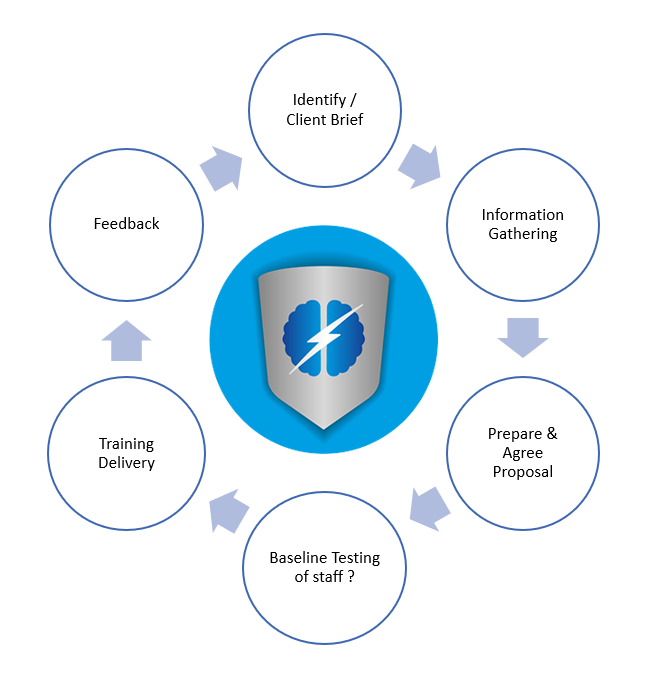
Cyber and Digital Awareness & Physical Security Training
Why do I need to train employees in security?
You spend a lot of money on security. This will involve the physical security of your buildings and facilities. You may have high security fencing, deadbolt door locks, CCTV cameras, intrusion detection systems, alarms, security guards, patrol dogs, HID entry cards, encryption of data, ID badges, biometric entry systems to name but a few security options. Your current security maybe providing the best security for you, your family or your business assets. All of these can be very good at protecting what is important to you, but are you really protected? Often the weakest link is the human factor. The staff member who could be taken in by a confidence trickster to gain access to your facility. Maybe the offender will just trick the staff member to transfer your money to another account controlled by the offenders? Regular training can help mitigate these threats. Your staff will then recognise these threats and your company can implement policies and procedures to prevent these types of crime targeting your staff.
Training staff in simple cybersecurity and protocols will help protect them and your company.
We can’t expect staff to be able to spot phishing emails or to know how to create strong passwords without cyber awareness training. While a minority of cyberattacks are caused by malicious staff, the majority are due to basic human error. Many phishing emails, for example, are very convincing. By training your staff, we can set them up for success.
Help your staff stay digitally and physically secure.
Make sure staff are trained to know the benefits of operating digitally, but are also aware of cybersecurity threats and how to deal with them. Due to the rapid development and changes in digital technology, it is a good idea to add cybersecurity to your annual training plans. We believe in training all your staff, not just high value targets like the Directors, Finance managers or HR. By training everyone (including the cleaners), in cyber and physical security best practice, you are empowering your workforce to protect themselves at home as well as at work. They will ‘think’ security when something is out of place or does not feel right. This will change your workplace security culture.
Our Training workflow
- Identify / Client Brief
Make contact with us, and we will discuss what your training / security problems or issues are. We listen to what you want, and you stay in control. We will agree a scope of the training and sign an agreement to ensure both parties know what will be covered. Not only that, but we also have NDA (Non Disclosure Agreements) that can be prepared to allow a free and open conversation to your security requirements.
- Information Gathering
We listen to what type of training you want from our subject-matter experts who are also qualified trainers and learning assessors. Do you have special requirements? Maybe you are a Close Protection Security company looking to train your staff in good digital skills to help protect your principal subject from digital threats as well as physical.
- Prepare & Agree Proposal
We listen to what training you want, and you stay in control. We will agree a scope of the training and provide a training proposal detailing the training to be provided to ensure both parties know what will be covered.
- Baseline Testing of staff ?
Do you want a baseline security test done first, so we can include this into the training? This can be very effective in the story telling methods we use to grab the learner’s attention.
- Training Delivery
We can deliver training at your facilities, or provide training at hotels or training venues with accommodation that are convenient for you. The training will often be a mix of PowerPoints, presentations, story telling and hands-on practical experience, with reflective logs and handouts to cater for all learning styles.
- Feedback
We will provide feedback options for delegates to complete at the end of the training sessions, so we can continue to improve and try and meet the needs of our clients. Staff will always be able to ask questions throughout the training and after by way of email.
